Introduction
Punjab is known for its fine grains and other agricultural products, earning it the nickname “Granary of India.” These include, but are not limited to: coffee, cashews, tea, spices, and sugar, each of which is further specified by specialty products such as Basmati rice noted for its exclusive fragrance, elongated grain size, and excellent cooking properties.
By 2024, the market for this rice variety will remain completely competitive, and strong as global interest in international cuisine and the emerging health food niche expands. The following blog post explores the far-reaching importance of Punjabi Basmati rice and provides a glimpse of leaders in this preeminent market, including Ameena Rice, among Basmati Rice Manufacturers in Punjab.
The Heritage of Basmati Rice
With deep origins Indian subcontinent specifically the fertile plain and Punjab of Basmati rice, it has centuries of heritage to boast. With its rich aroma and mild taste, as well as short cooking time and distinctive market position, Basmati rice deserves its fame.
This rice variety has been traditionally cultivated and owing to the environmental favorability of the Punjab region such as the alluvial soil and favorable temperature, the quality of this kind of rice is better than the others.
Basmati Rice Manufacturers in Punjab A Flourishing Industry
Punjab has a large Basmati rice industry that constitutes a significant portion of the province’s economy as many millions of people depend on this business for their sustenance.
The craftsmanship behind Basmati rice is inherent in the region and producers have benefited from tradition and advanced practices in agricultural reel and profile engineering to feed the world’s growing appetite.
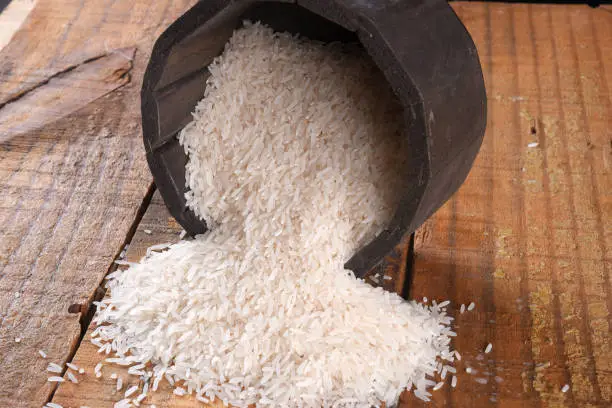
Advanced Cultivation Techniques
A brief look at the process of cultivation of basmati rice in Punjab: The process of growing and processing has developed over time. Basically, due to globalization and new technologies, the manufacturers use sophisticated farming styles for better yields and the production of improved quality fruits.
Current trends dictate that the Basmati Rice Manufacturers in Punjab have adopted the best practices from all across the globe and some of these practices include; Precision agriculture, efficient irrigation, and the use of good seeds among other farming practices. All these innovations promote production and at the same time guarantee the bears’ habitat sustainability.
Processing and Quality Control
This is the processing phase which requires much attention to retain the quality of Basmati rice. Punjab’s manufacturers contribute substantially to the establishment of modern milling and packaging technology.
This shows that quality control mechanisms are strictly followed to ensure that every grain of rice produced meets international quality. This uncompromising quality control has kept Basmati rice from Punjab standing out as one of the best in the international markets.
Ameena Rice A Benchmark of Quality
Ameena Rice is one such company that has found its place amidst thousands of other Basmati Rice manufacturers in Punjab, India, but has set itself above the rest with its quality Basmati Rice. Introduced to reach out to buyers with the best quality Basmati rice, Ameena Rice has been leading the race constantly.
Commitment to Excellence
Ameena Rice’s drive towards the achievement of excellence is triggered right from the farms. The company supports small-scale farmers through capacity building, extending knowledge, and required inputs to practice the right methods of rice production.
The ability to grow quality paddy prepares better grounds for the final product in Ameena Rice.
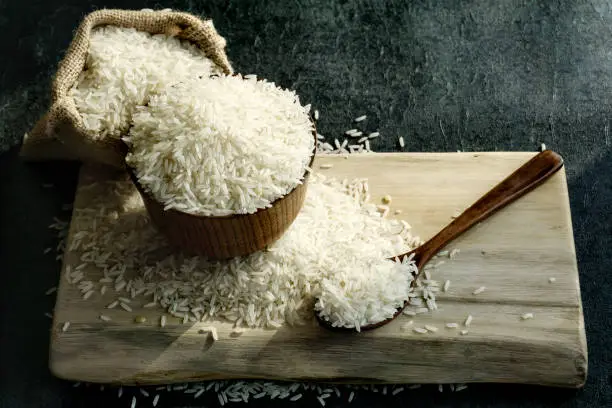
Modern Processing Facilities
Ameena Rice’s processing facilities are outfitted with modern technology that meets processing requirements. From de-husking right up to polishing, each procedure undergoes strict checks to ensure that the Basmati rice retains its distinctive features.
The commitment to maintaining high quality shows the consumers that they get tasty rice as well as rice that is healthy and clean.
Global Reach
Thus, Ameena Rice has effectively marketed and distributed its products across the international markets due to its sound distribution network.
The brand represents the best quality and consumers prefer their products from the brand without hesitation.
Looking at the achievements of Ameena Rice it can be said that Punjab’s basmati rice has a great potential to set high standards internationally.
Economic Contributions
The Basmati rice industry is important for Punjab’s economy. It yields a fairly good amount of revenue through exports and contributes to the employment of people significantly.
By 2024, the role of the industry in economic contributions will stand out even louder.
Export Revenues
As for exports, basmati rice has also been on the rise, especially to markets in the US, UK, and some countries in the Middle East. In these markets the tasty aroma of the Basmati rice originated from Punjab earns the country a lot of foreign exchange.
Companies such as Ameena Rice are the main players in this export growth, given the rigorous quality that it emits.
Employment Opportunities
At the moment many industries in Punjab are involved in the processing of Basmati rice and this quickly makes it a provider of numerous employment opportunities.
Almost every industry is focused on employing a significant number of individuals such as Farmers and workers right from Production Field and Labor then Procurement processing Plant workers and Logistics employees millions.
This not only holds additional reserved beneficial influence in stimulating the process of economic development internally but also helps in the eradication of poverty and the enhancement of people’s living standards in rural areas.
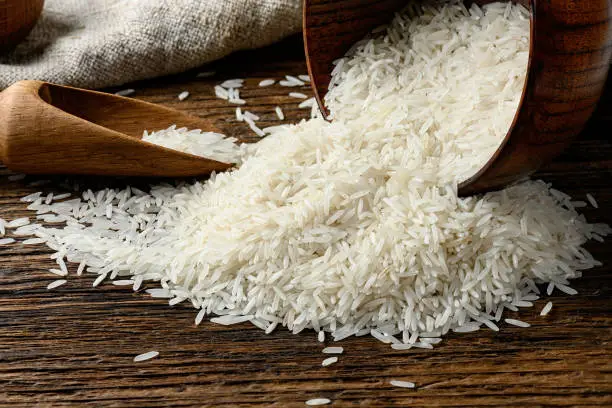
Environmental Impact and Sustainability
However, as the world faces what is perhaps the premier crisis of the developed world today in environmental degradation, the Basmati rice industry in Punjab is slowly moving towards sustainability.
Some of the aspects that manufacturers continue to work on to reduce their impact on the environment include the long-term sustainability of rice production.
Organic Farming
Genetically modified food and biotechnology are also on the increase and their applications particularly in Basmati rice farming have been on the rise. Methods such as crop rotation, using livestock for ploughing, and reduced usage of chemical fertilizers and weedicides create a healthy soil structure and a variety of species.
Currently, the Basmati rice manufacturers in Punjab are inclining towards the use of organic inputs to be able to satisfy the current and future demand by Target Markets that mostly require organically produced products.
Waste Management
Another consideration is the management of waste because wastes are products that have no economic value at the time they are disposed of. Through vertical rising manufacturing occasions, agricultural waste can be recycled and used as fertilizer to increase the fertility of the soil. These practices can be said to involve the following as being more environmentally friendly and sustainable processes in the growth of rice.
Challenges and Opportunities
As one of the biggest manufacturers of basmati rice in the world today, Punjab still has a ways to go before this sector is ready to compete on the international stage, given the reality that many of its advantages provide investment with healthy returns.
Climate Change
The above study also revealed that global warming has become one of the most dangerous factors that affect agriculture around the world, and Punjab is not immune to this problem. Examples of biotic factors that could influence the production of rice include temperatures, climate, and rainfall supplemented by water scarcity.
Thus, it becomes imperative for the basmati rice manufacturers in Punjab province to carry out more research to enhance the development of basmati rice varieties that are designed to withstand harsh weather conditions that crop up due to natural occurrences such as climate change.
Trade Policies
Basmati rice export is likely to be affected by international trade policies and regulation mechanisms. Tariff policies, trade restrictions, and fluctuations in the import laws of major markets present some risks.
Basmati rice manufacturers in Punjab have to keep one another updated on international trade situations and the need is felt to lobby with the government for the right trade policies.
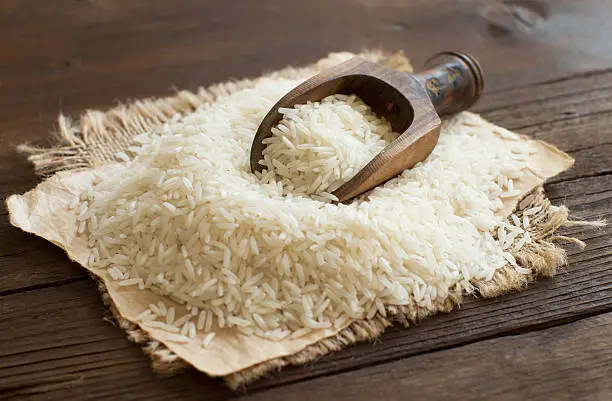
The Future of Punjab’s Basmati Rice Industry
However, all these problems suggest that the new Basmati rice industry of Punjab holds great promise even after all these problems.
Punjabi people use a specialized form of Basmati already which is high-quality, aromatic rice and there is demand for Basmati in global markets.
Technological Advancements
It is important to note that the future of the industry will significantly depend on the use of newer and ever more sophisticated technologies in that particular area.
Precise farming, squad flying, and Artificial Intelligence can help improve practices to grow crops, optimizing yields, and reducing costs. Any organization that embraces these technologies in its production line will benefit from the strategic positions in the world market.
Expansion of Organic and Specialty Products
There is growing concern in the market concerning organic and specialty rice products. The trend indicates that basmati rice manufacturers in Punjab can tap into the market by increasing the production of organic products and launching new rice brands. This will not only help them address niche markets but will also improve the overall visibility and reputation of their brand.
FAQs on Basmati Rice Manufacturers in Punjab
- What makes Punjabi Basmati rice different from the others?
Basmati rice produced from Punjab is special because of the special smell, length of the grains, and how well this rice cooks. The favourable environment and traditional method of planting are some of the reasons why it is excellent. SOME OF the manufacturers include Ameena Rice from Punjab this company maintains quality standards as it exports its rice.
- The quality of which Basmati rice manufacturers in Punjab is maintained?
Manufacturers of basmati rice in Punjab have adopted superior farming practices, modern machinery for production, and meticulous quality regulation measures. From choosing high-quality seeds to using sophisticated processes in milling, every process is closely watched. Currently, companies such as Ameena Rice work together with farmers and properly invest in technology to achieve the highest quality.
- In what ways have the Basmati rice manufacturers in Punjab implemented environmental sustainability measures?
It is seen that basmati rice manufacturers in Punjab have taken several environmental measures for sustainability. Some of them are water conservation and management, integrated pest management, and soil management. That is why eco-friendly technologies and practices are introduced to decrease negative impacts on the environment and guarantee the long-term sustainability of rice production.
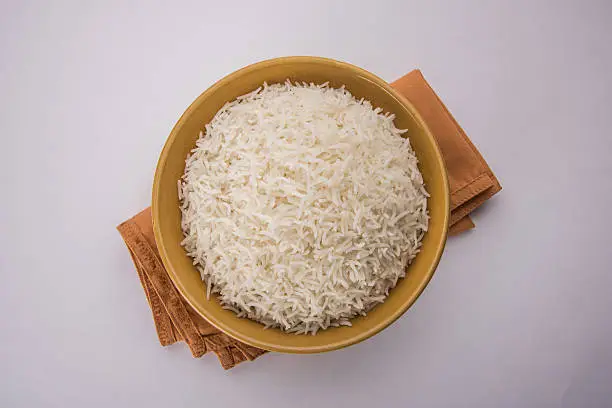
Conclusion
The estimation of the Basmati rice industry in Punjab in 2024 is immense due to its global presence in essential sectors by the hardworking and creative Basmati rice manufacturers in Punjab.
With organizations such as the Ameena Rice company in India, the region has begun to embrace quality, sustainability, and excellence. With the growing number of developments and overcoming of difficult situations in the industry, Punjab’s Basmati rice will for sure be always valued and demanded by people all over the world.
There is hope for manufacturers of Basmati rice in Punjab to tap into the growing global market following the release and entry of superior aromatic rice brands into the market.


